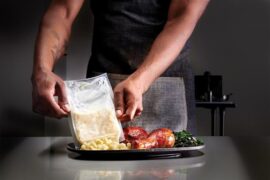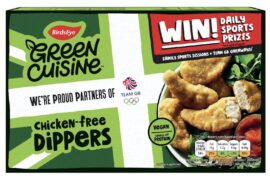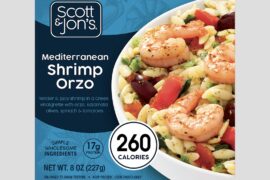Iceland, the specialist frozen food retail chain with more than 900 stores across the United Kingdom, aims to eliminate plastic packaging from its entire private label range of more than 1,000 products by the end of 2023. The announcement on January 16 came on the same day that McDonald’s set a goal to switch to 100% fully recycled packaging by 2025, and less than a week after Prime Minister Theresa May vowed to dry up the UK’s plastic waste stream by 2042.
Iceland’s pledge is an important step towards cutting down on the estimated one million tons of plastic generated by supermarkets in Britain every year. In replacing plastic, the retailer says it will harness the latest technologies to create a range of packaging comprising paperboard and pulp trays along with paper bags which are fully recyclable through domestic waste collection or in-store recycling facilities, and therefore less harmful to the environment.
The supermarket operation has already removed plastic disposable straws from Iceland’s own label line. And its new food ranges, which are set to hit the shelves in early 2018, will feature paper-based rather than plastic food trays.
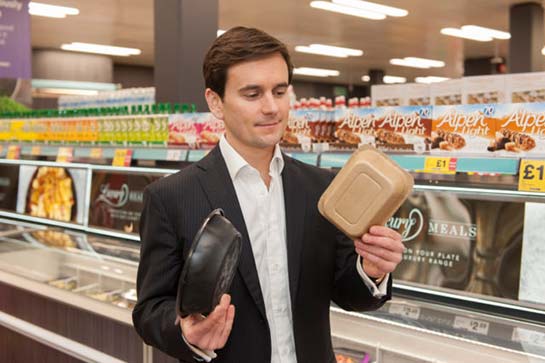 “There really is no excuse anymore for excessive packaging that creates needless waste and damages our environment,” says Iceland Managing Director Richard Walker. He intends to phase out plastic packaging by 2023 for the frozen food retailer’s entire private label range of products.
“There really is no excuse anymore for excessive packaging that creates needless waste and damages our environment,” says Iceland Managing Director Richard Walker. He intends to phase out plastic packaging by 2023 for the frozen food retailer’s entire private label range of products.
“The world has woken up to the scourge of plastics. A truckload is entering our oceans every minute, causing untold damage to our marine environment and ultimately humanity, since we all depend of the oceans for our survival,” said Iceland Managing Director Richard Walker.
He continued: “The onus is on retailers, as leading contributors to plastic packaging pollution and waste, to take a stand and deliver meaningful change. Other supermarkets, and the retail industry as a whole, should follow suit and offer similar commitments during 2018. This is a time for collaboration.”
John Sauven, executive director of the Greenpeace non-governmental environmental organization, in applauding Iceland’s action, commented: “It is now up to other retailers and food producers to respond to the challenge. The tidal wave of plastic pollution will only start to recede when they turn off the tap.”
McDonald’s is Onboard
Meanwhile, McDonald’s says that it will shift to 100% sustainable packaging over the next seven years. This expands upon a previous stated deadline of 2020 for all fiber-based packaging to be supplied from recycled or certified sources where no deforestation occurs.
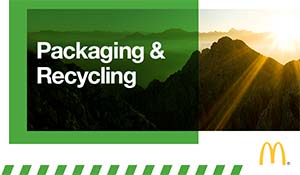 “As the world’s largest restaurant company, we have a responsibility to use our scale for good to make changes that will have a meaningful impact across the globe,” said Francesca DeBiase, McDonald’s chief supply chain and sustainability officer. “Our customers have told us that packaging waste is the top environmental issue they would like us to address. Our ambition is use less packaging, sourced responsibly and designed to be taken care of after use, working at and beyond our restaurants to increase recycling and help create cleaner communities.”
“As the world’s largest restaurant company, we have a responsibility to use our scale for good to make changes that will have a meaningful impact across the globe,” said Francesca DeBiase, McDonald’s chief supply chain and sustainability officer. “Our customers have told us that packaging waste is the top environmental issue they would like us to address. Our ambition is use less packaging, sourced responsibly and designed to be taken care of after use, working at and beyond our restaurants to increase recycling and help create cleaner communities.”
To reach these goals, McDonald’s is collaborating with leading industry experts, local governments and environmental associations to improve packaging and recycling practices. Together they aim to drive smarter packaging designs, implement new recycling programs, establish new measurement programs and educate restaurant crew and customers.
Currently, 50% of McDonald’s customer packaging comes from renewable, recycled or certified sources and 64% of fiber-based packaging comes from certified or recycled sources. Also, an estimated 10% of McDonald’s restaurants globally are recycling customer packaging.

